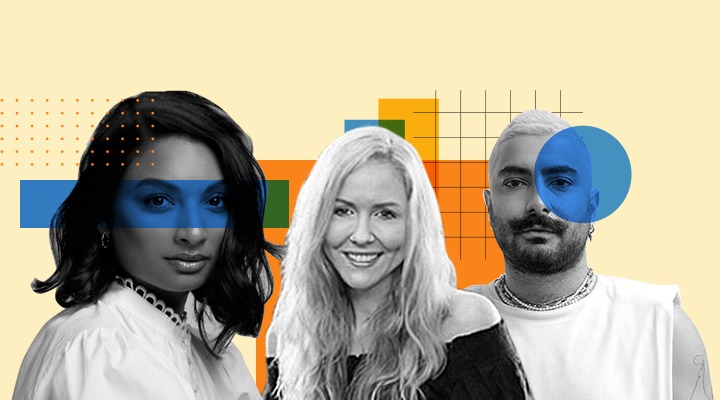From people of colour to those with disabilities or on the LGBTQIA+ spectrum, there are big chunks of diverse customer bases who are ignored by retailers and only too willing to spend their money at brands who embrace them. During Retail Week recently, disability advocate and consultant Lisa Cox, LGBTQIA+ activist Deni Todorović and head of creative and campaign strategy Shanthi Murugan shared their insights on where retailers are failing at diversity and inclusion. Missed their pane
anel discussion at Retail Week? You can watch it below:
https://vimeo.com/685672814
Below are some of the biggest takeaways from their conversation:
We need to re-think what the typical Australian customer looks like
Last year, Murugan led Adore Beauty’s Global Shades Initiative, a call-out to brands to offer a wider range of cosmetics to suit people of all backgrounds. However, she soon realised that only a certain subset of brands’ products were being sold to Australian customers, largely because there was a misconception that there was little demand in the market for darker shades.
“I learned quite quickly that the Australian market wasn’t being viewed accurately and that was the biggest problem. We boast that we’re so multicultural, but it wasn’t really being acknowledged. Through a global lens, Australians are light-skinned with blonde hair, blue eyes and able bodied. And that’s why you can find 20 shades of beige foundation in your local supermarket, but nothing that would cater to someone who looks like me.”
“They’re just bloody clothes”
Fashion influencer and LGBTQIA+ activist Deni Todorović is passionate about what they describe as “degendering retail” – breaking down the barriers between traditional male and female sectors, particularly in the fashion industry. According to Todorović, people should feel comfortable to shop for any item of clothing, regardless of their gender.
“As a gender diverse person, shopping can be really, really confronting and scary,” they revealed during the discussion.
“Degendering fashion is not about erasing gender. It’s not about non-binary people saying, ‘You don’t get to be a man or a woman’. It’s just simply pulling up a chair at the table for gender diverse and trans people to actually be able to consume fashion in a way that is safe.”
Todorović recalled an incident where they wanted to try on some shapewear at a department store, but they were told by the sales assistant they couldn’t enter the fitting rooms.
“It was this 10 minute ordeal of me feeling like shit, to be quite frank. And that one incident means that I’m never gonna go into that store again.”
If you want to see what real diversity looks like, watch a Savage x Fenty show
When popstar and woman of colour Rihanna launched her own lingerie brand Savage x Fenty and cosmetics range Fenty, she was passionate about embracing people from all backgrounds. According to Todorović and Murugan, Rihanna changed the game in both the beauty and fashion industries, leading the way for diversity and inclusion.
“The world collectively cancelled Victoria’s Secret because we all woke up one day and thought, ‘Wait a second, this is really problematic.” And it was largely thanks to Rihanna that we said to ourselves. ‘Wait, this is what lingerie can look like. This is what bodies can look like’,” said Todorović.
“I tell every client I work with that if you want to know what diversity should look like, watch every single Savage Fenty show, and then come back to me, because it’s not enough to just do the bare minimum.”
Murugan added: “She’s a woman of colour who created a foundation for all, and it completely blew apart the entire beauty industry and it’s reshaped how everyone’s thinking about complexion. If I were to create my own brand…I’d take inspiration from Rihanna.”
Stop treating disability as the “ugly cousin” of diversity and inclusion
Lisa Cox, who has worked as a disability consultant to several organisations, including Afterpay Australian Fashion Week, often describes disability as “the ugly cousin” on the diversity spectrum.
“Disability is pushed to the side because it’s less palatable,” she said. “It’s certainly something that I’ve tried to overcome over the years, particularly in the fashion industry. Last year, I kept talking to different people in the fashion industry and last year, for the very first time, Australian Fashion Week had people with disabilities included in it, which was huge. It was groundbreaking.”
Up until that point, Cox said that Fashion Week had merely ticked the diversity box for a few customer bases, including people of colour, yet had ignored people with disabilities, who represent 20 per cent of the community.
“And that’s what we have to remember here. Disability is the largest minority. So from a marketer’s point of view or from a business point of view, we’re excluding a huge portion of the community.
This year, Cox is working again with Afterpay Australian Fashion Week, which will feature a runway show focusing specifically on adaptive fashion for people with disabilities.

